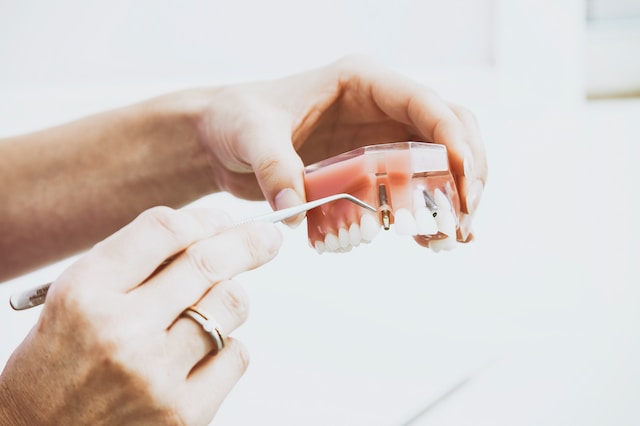
Benefits of Wearing Dentures for Improved Oral Health
Dentures can improve oral health in many ways, whether you have just lost a tooth or want to replace multiple teeth. Getting a denture can also boost your self-esteem and confidence.
While wearing dentures Skippack, PA, it’s important to maintain good dental hygiene habits. Brushing your gums, tongue, and other mouth areas can help remove plaque and bacteria that lead to bad breath.
Better Oral Hygiene
Wearing dentures has many benefits, and they can greatly impact a person’s oral health. In addition, they can also enhance a person’s overall appearance and self-image.
Dentures, for example, could give someone a younger look and a more full grin. They can also help to keep the face appearing young and healthy by avoiding drooping, which can make someone look much older than they are.
Just like with natural teeth, dentures require routine cleaning when worn. Brushing them with a soft toothbrush and non-abrasive toothpaste will help you achieve this.
Patients must also remove their dentures before eating and soak them at night. This will help prevent food particles from accumulating in the appliance. It will also keep the appliance hydrated and lubricated so it doesn’t dry out. This can lead to some problems, including bad breath and receding gums.
Better Speech
Dentures are the perfect way to restore oral health if you have missing teeth. These prosthetics look and feel like natural teeth and can be either removable or implant-supported, depending on your needs.
Getting used to wearing dentures can be challenging, especially at first. During the initial period of wearing them, you’ll likely experience excess salivation and sore spots in your mouth.
Once you get used to them, they’ll fit better and feel more comfortable in your mouth. Over time, your tongue and mouth will learn to move with the dentures, and speech will become much easier and clearer.
If you struggle with speaking with your dentures, try talking to yourself in a quiet area or in front of a mirror to improve your speech. Talking to yourself will help you form words and eliminate any problems with slurring or clicking sounds that you may be experiencing when wearing your dentures.
More Ease of Eating
If you have missing teeth, it can be difficult to chew food properly and even harder to swallow. Eating is vital to maintaining good oral health, and dentures help restore your ability to chew your food without any problems.
Dentures allow you to continue eating a range of foods. If you have any doubts about what you may eat while wearing your dentures, you should first consult with your dentist because some foods may need fixing.
Another benefit of dentures is that they make talking and articulating words simpler. Although speaking with dentures can take some getting used to, these challenges should be overcome with time and practice. You could have some difficulty pronouncing some letters, such as “t,” “s,” and “f.”
More Confidence
Missing teeth can be embarrassing and make you feel self-conscious. Fortunately, dentures offer an opportunity to regain your confidence.
You may also be able to enjoy more food. However, knowing which foods you should avoid while wearing dentures is important.
Generally speaking, you should avoid hard, sticky, or tough foods to chew. Foods that are too sticky or hard to eat can be difficult to eat and may cause dentures to slip out of place.
To avoid this, chop your food into small pieces and distribute it evenly on both sides of your mouth while chewing. This will stabilize your dentures and help you chew them properly.
You should be careful to eat slowly as well. Doing this can stop your dentures from moving about and irritating your gums. Additionally, it’s crucial to look after your dentures by brushing them daily and cleaning them thoroughly at home.




